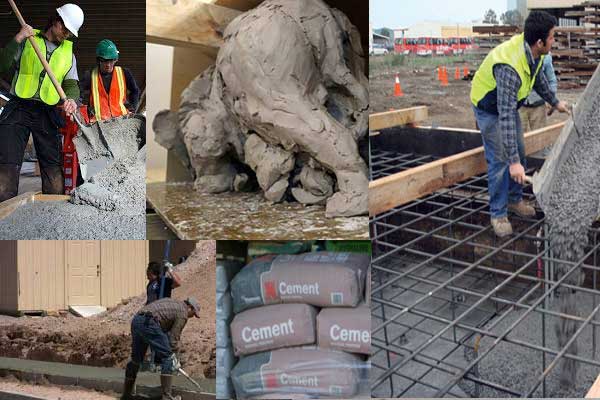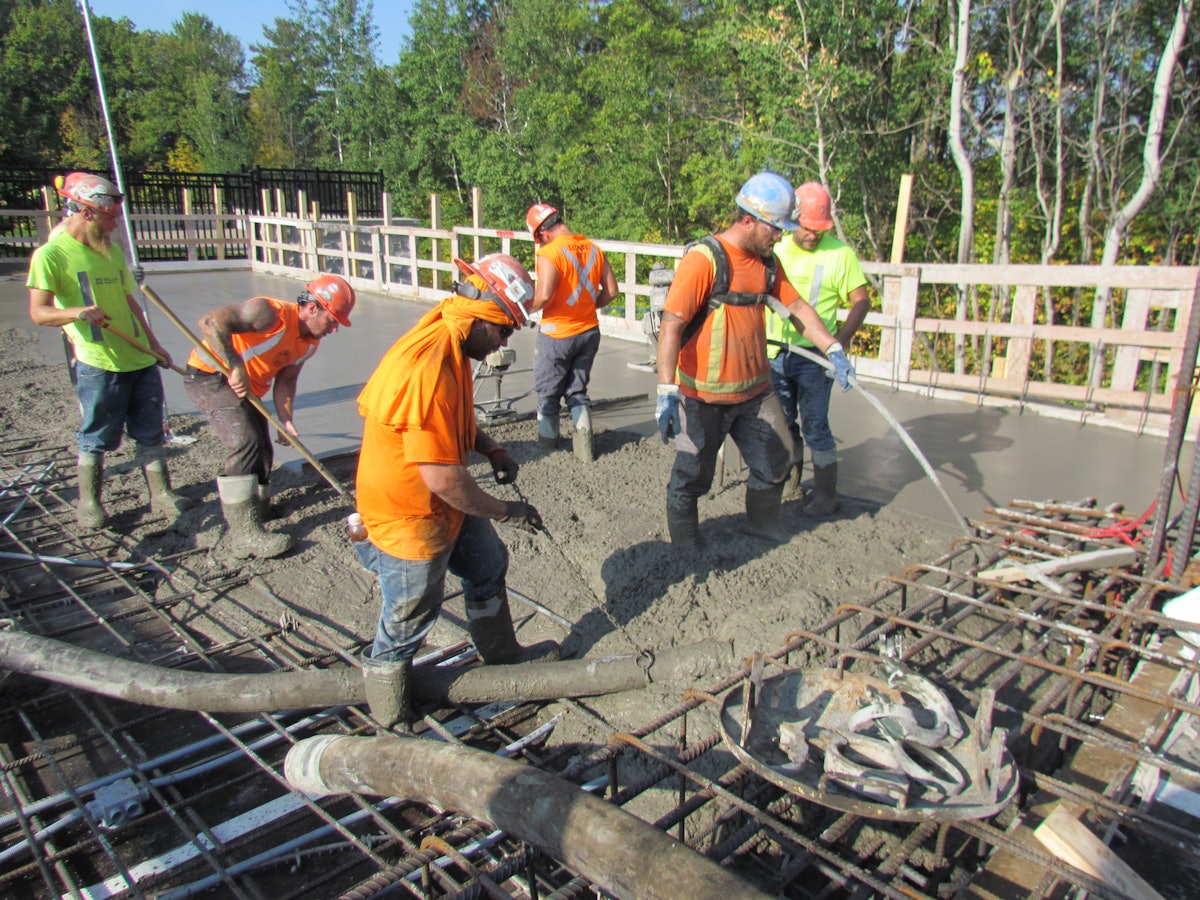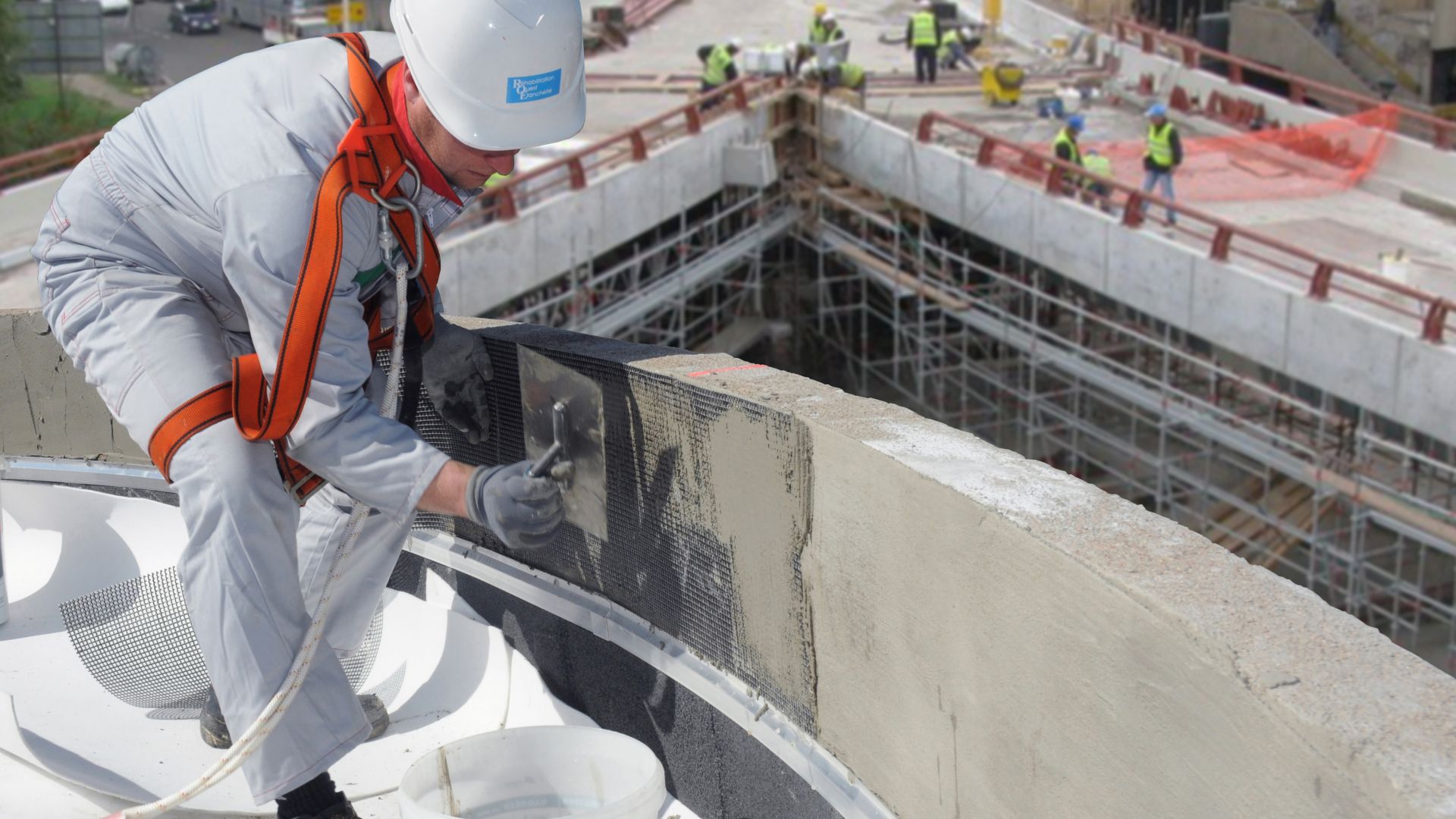Recognizing the Numerous Applications of General Engineering Concrete in Diverse Industries
When you consider the many methods basic engineering concrete impacts various sectors, you'll find its applications are both broad and vital. From giving sturdy structures for transport networks to supporting innovative power services, this product plays a vital duty in shaping our framework. What regarding its influence on city advancement and ecological engineering? Exploring these facets can expose far more than you might anticipate.
The Duty of Concrete in Construction and Building Projects
Concrete plays a vital duty in building and structure projects, comprising about 70% of all products made use of in modern structures. You'll locate it in structures, walls, and floorings, supplying stamina and toughness. When you pick concrete, you're going with a material that can hold up against climate condition, withstand fire, and support heavy tons. Its flexibility permits for different applications, from residential homes to towering skyscrapers.Mixing concrete with ingredients can enhance its buildings, improving workability and establishing times. You can also mold it into various forms, allowing for creative thinking in design. As you deal with your tasks, consider the ecological benefits of using concrete, such as its capability to lower power usage in structures. Overall, concrete's dependability and versatility make it a keystone of the building industry, making sure that structures are not only useful however likewise secure and lasting.
Facilities Growth: Roads, Bridges, and Passages
When it pertains to framework growth, roads, bridges, and tunnels are important components that link areas and facilitate transportation. You rely upon these structures daily, whether you're travelling to work or taking a trip fars away. General design concrete plays an essential function in their construction and durability. Its strength and versatility permit designers to make durable streets that endure hefty web traffic and rough weather conditions.Bridges, commonly extending rivers and valleys, require specifically developed concrete to assure safety and durability. The usage of strengthened concrete in tunnel building and construction not only sustains considerable weight yet also improves resistance against water seepage and ground activity.

Concrete in Transport: Enhancing Mobility and Safety And Security
As you navigate via busy cities and country roads, the function of concrete in transport becomes evident, significantly enhancing both flexibility and safety. Concrete's resilience guarantees that roads, runways, and bridges endure heavy traffic and extreme climate condition. This longevity lessens the need for constant repairs, keeping your trips smooth and reliable.In enhancement, the layout flexibility of concrete enables for ingenious frameworks like overpasses and passages, which efficiently reduce blockage and enhance web traffic flow. You'll discover that concrete surface areas likewise supply far better grip, reducing the probability of mishaps in damp conditions.Moreover, the usage of concrete in trains helps keep security and security for trains, making your travels extra reliable. Generally, concrete's contributions to transportation not just enhance your wheelchair but also substantially strengthen public safety and security, showing its necessary function in the facilities you depend upon daily.

Energy Market Applications: From Power Plants to Renewable Energy
In the power experience concrete design field, concrete plays a substantial function in the building and operation of nuclear power plant and renewable resource installations. You'll find it crucial for developing durable foundations, sustains, and containment structures that withstand severe problems. In thermal power plants, strengthened concrete frameworks assure safety and durability against high temperature levels and pressure. West Coast General Engineering Concrete.When it involves renewable power, concrete is essential for wind generator bases, photovoltaic panel places, and hydroelectric dams. It gives the security required to harness energy efficiently. You could not understand it, but the concrete made use of in these applications is particularly developed to fulfill details performance requirements, like longevity and resistance to environmental factors
Cutting-edge Concrete Solutions in Environmental Engineering

The Effect of Concrete on Urban Development and Landscaping
Concrete plays a necessary duty in forming metropolitan development and landscaping, influencing whatever from facilities resilience to visual charm. When you assume of cityscapes, concrete structures like bridges, roadways, and buildings come to mind, providing a tough structure for metropolitan life. You'll see just how properly designed concrete paths and plazas improve public spaces, making them a lot more inviting and functional.In landscape design, concrete offers adaptability, making it possible for innovative layouts for patio areas, maintaining walls, and ornamental features. You can produce distinct exterior areas that blend seamlessly with nature while keeping structural honesty. In addition, concrete's ability to stand up to weather condition extremes guarantees durability, decreasing the need for regular repair work.
Future Trends and Developments in General Design Concrete
As city landscapes progress, the need for ingenious concrete remedies is driving innovations in general design. You'll see trends leaning towards eco-friendly materials and lasting techniques. Researchers are concentrating on developing high-performance concrete that lowers ecological influence without sacrificing strength.Next-gen additives and blends, like recycled aggregates and bio-based materials, are acquiring traction, boosting longevity and minimizing carbon impacts. Smart concrete modern technology is also emerging, integrating sensors that keep track of architectural health in real-time, permitting proactive maintenance.You could find that 3D printing with concrete is coming to be much more feasible, allowing complex designs and faster building timelines. In addition, the integration of self-healing concrete is on the surge, ensuring durability and reducing repair costs.
Regularly Asked Questions
What Are the Ecological Effects of Concrete Manufacturing?
Concrete production generates significant carbon emissions, consumes water, and diminishes natural deposits. You can mitigate these effects by discovering sustainable options, optimizing mix designs, and including recycled materials to reduce your environmental impact and improve sustainability.
Exactly How Does Concrete Contrast to Various Other Building Products?
Concrete's resilience and strength frequently outperform materials like wood and steel. It's versatile, cost-efficient, and energy-efficient, yet its environmental impact can be considerable. You'll wish to consider these elements concrete footings for house when choosing structure materials.
What Are the Various Types of Concrete Available?
There're a number of types of concrete available, including criterion, reinforced, high-strength, lightweight, and ornamental. Each kind serves details objectives, so you can choose the one that best fits your task's needs and demands.
Just How Is Concrete Recycled and Recycled in Construction?
You can recycle concrete by squashing it into accumulation, which you after that recycle in brand-new building and construction jobs (West Coast GE Concrete contractors). This process lowers waste, lowers prices, and minimizes the ecological impact of sourcing brand-new materials for your builds
What Precaution Are Needed When Working With Concrete?
When working with concrete, you need to wear protective equipment, like gloves and safety glasses, warranty correct air flow, and use secure training techniques. Constantly comply with security guidelines to protect against injuries and preserve a safe and secure working setting.
Comments on “How to Improve Your Project’s Lifespan with West Coast General Engineering industrial concrete”